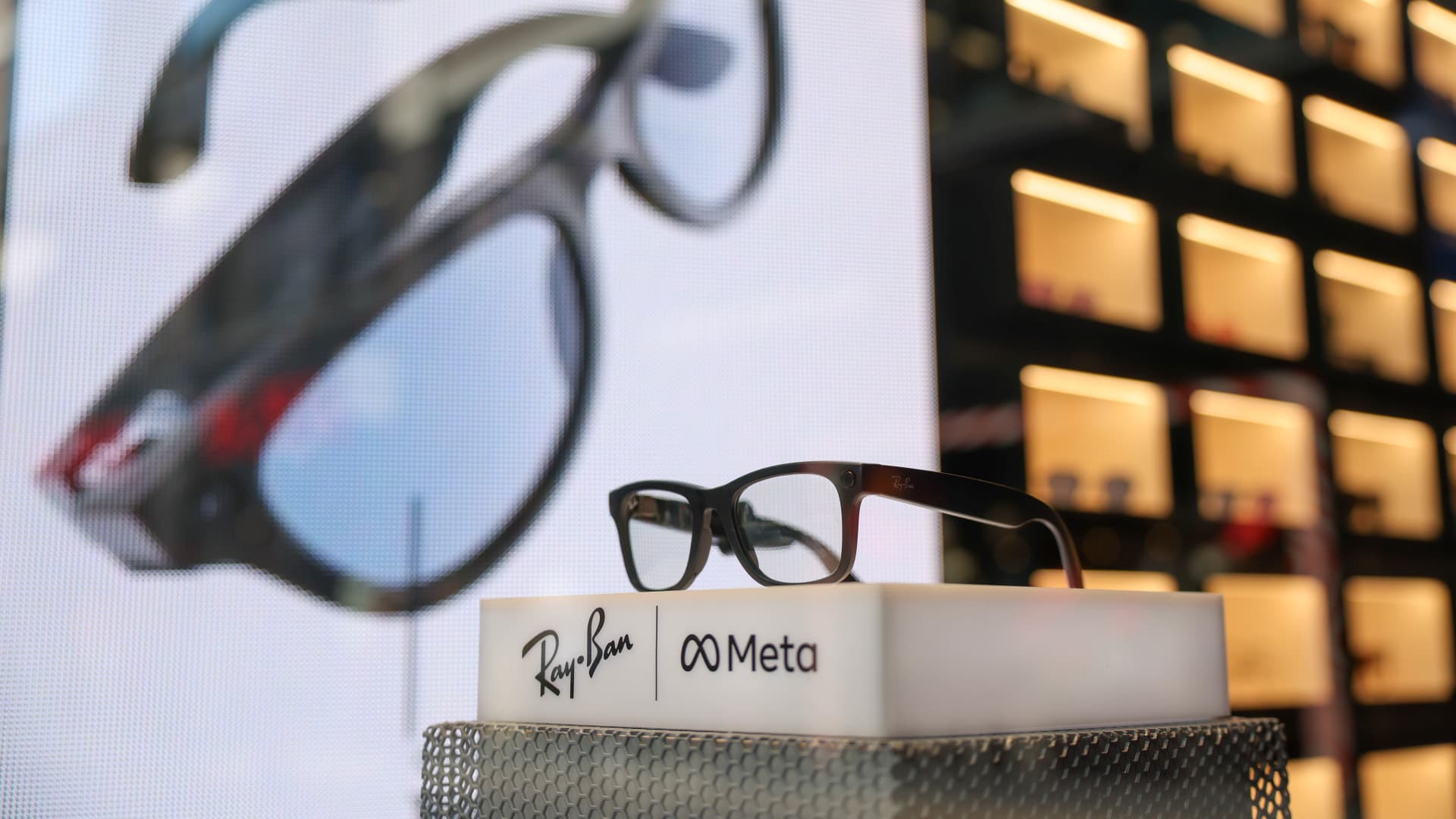Smart glasses, many with components made in China, are emerging as an up-and-coming category as the fall consumer technology product season gets underway. The glasses are a simpler version of Apple’s pricey Vision Pro, not to mention the high-end tech required for virtual reality headsets. Snap has revealed augmented reality glasses ; Meta is expected to do so at its own event starting Sept. 25. The Facebook-parent’s Ray-Ban Meta Smart Glasses are already seeing traction, HSBC’s Frank He, head of technology hardware research for mainland Chinese stocks, pointed out in a report earlier this month. Based on HSBC research, He said the second generation of those smart glasses sold more than 1 million units in the first half of this year, versus 300,000 for the first generation from Sept. 2021 to Feb. 2023. Acceptance struggle Similar wearables, such as Google Glass (discontinued in early 2023) have struggled to gain wide acceptance beyond a niche audience. “We think the inflection point may be around the corner, triggered by the upcoming proliferation of AI assistants/agents,” He said, noting one of HSBC’s buy-rated picks to play the trend is Hong Kong-listed Sunny Optical. “We also like Sunny due to its leading knowhow in optics for wearable devices,” the analyst said, “and we believe it will benefit from higher-than-expected demand for Ray-Ban smart glasses over the next two years.” “In our base case, we estimate Sunny’s smart glasses [nonsmartphone camera module] shipments will reach 2m units and 5m units in 2024-25e (with a circa USD$8-10 content value), respectively, with more potential upside from the engagement with other OEMs, such as Xiaomi,” the HSBC report said. Sunny Optical is a China-based supplier for products from cars to microscopes. The company also has factories in Vietnam and India , according to an investor presentation. Low profile Sunny has otherwise kept a low profile. But CMB International analysts said in August that fiscal first-half revenue in Europe and the U.S. grew by 32% and 15%, respectively, “implying strong sales from … European automakers and U.S.’s Apple/Meta VR.” The roughly $300 Ray-Ban Meta smart glasses allow users to take pictures, short video clips, listen to music and interact with Meta’s AI features, according to promotional materials. For the year through July, the optical company’s non-smartphone camera module shipments surged about 61%, which HSBC attributes to “brisk sales” of Ray-Ban Meta Smart Glasses. HSBC has a price target of 58.90 Hong Kong dollars ($7.56) on Sunny Optical, implying upside of about 30% from Friday’s close. The bank upgraded Sunny to a buy in late August. That said, Sunny Optical remains sensitive to highly competitive smartphone and car markets. JPMorgan analysts were less optimistic in mid-August, following Sunny Optical’s first-half earnings call. “Though we also think the worst for [Sunny Optical’s] fundamentals has passed and its recovery is on track, we maintain Neutral,” JPMorgan said, citing slower growth than peers in high-end smartphone products and less growth in the vehicle business. JPMorgan has a price target of HK$55. â CNBC’s Michael Bloom contributed to this report.

